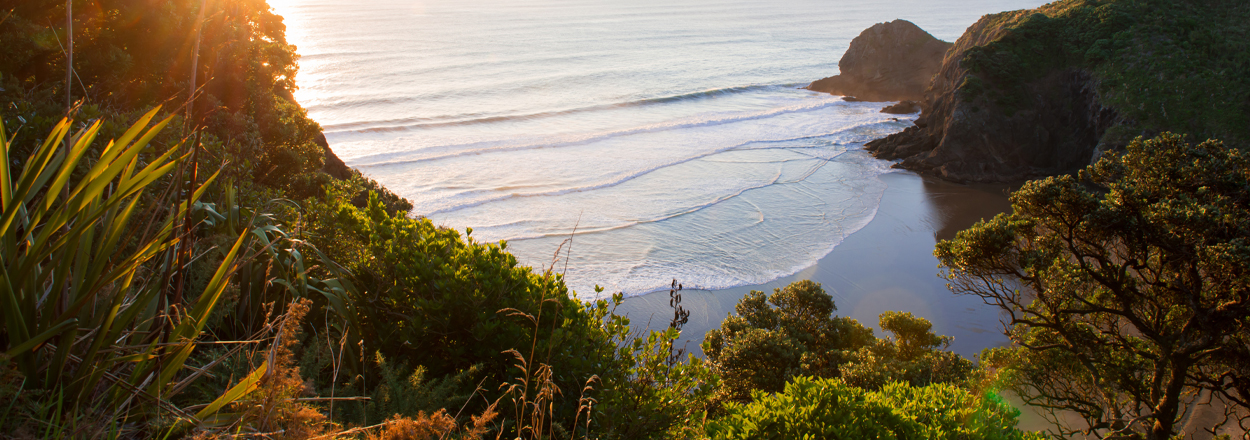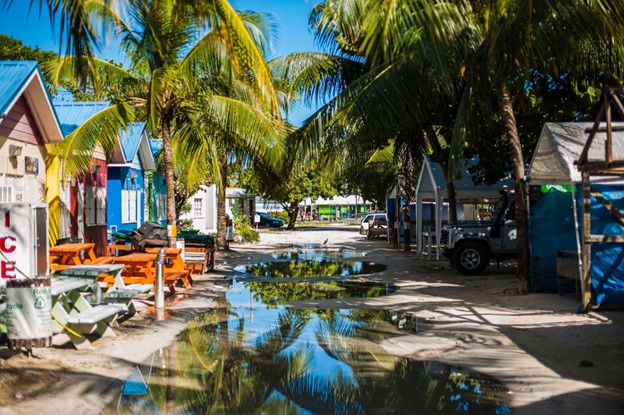
Travel insights from Jenna Buege, senior editor of The Compass
5 Sustainable Travel Destinations
Our earth is precious and in order to protect our planet and the lands, animals and places we hold dear, many destinations are evaluating the role they play when it comes to sustainability and conservation. From responsible tourism practices and renewable energy to carbon-neutral efforts and investing in public transportation, there’s much to consider in the grand scheme of things.
And, while many countries are making positive changes, these five destinations around the globe stand out from the pack in regard to their sustainable initiatives and tourism efforts.
Bhutan
Picturesque and secluded, the mountainous country of Bhutan is blessed with a wide variety of flora and fauna, fabulous landscapes and dreamy temples. It also happens to be one of the world’s most sustainable destinations. The people of Bhutan care deeply for their land, so deeply in fact that the destination became the world’s first carbon-negative country in 2009 after the government implemented strategies to prioritize the region’s environmental policies.

And, on the heels of the COVID-19 pandemic, Bhutan continues to be a leader in sustainability. Upon reopening to the public in 2022, the country unveiled a new tourism strategy with an emphasis on sustainable development, upgrades to existing infrastructure, green initiatives and more. While the country’s Sustainable Development Fee jumped from $65 USD to $200 USD per person, per night, travelers can feel good knowing their hard-earned cash is going towards a good cause as Bhutan plans to reinvest the fees into ongoing development projects including free education and healthcare.
New Zealand
A glorious island nation in the sunny South Pacific; New Zealand gets a gold star for its thoughtfulness regarding sustainability. One of the country’s most recent green-focused headlines is the “Tourism Sustainability Commitment”, an ambitious goal spearheaded by Tourism Industry Aotearoa that aims to convert tourism dollars to achieve economic, environmental and social stability for local businesses. The group hopes to complete the project by 2025.

In addition to creating plans to protect their future, the people of New Zealand have a rich history of conservation. The islands’ indigenous peoples, the Māori, have a deep appreciation for the earth and the creatures that inhabit it. As such, Māori people have played a monumental role in shaping the country’s environmental policies including The Rights of Nature Movement, which grants legal personhood status to environmental and geographic features.
This is all good news for travelers hoping to explore the Land of the Long White Cloud’s incredible landscapes, including, for all the fantasy fans out there, Middle Earth.
Barbados
The recipient of ITB Berlin’s 2023 Green Destinations Story Award for Environment and Climate, Barbados’ eco-friendly efforts are turning heads. And at the center of the Caribbean destination’s newsworthy achievement is its motivation to achieve 100 percent renewable energy by 2030 and 70 percent carbon neutrality by 2050.

To bring this goal to fruition, Barbados has been working tirelessly to invest in its public transportation system and renewable energy sources. And, as of March 2023, the island is home to the largest fleet of electric buses in the Caribbean (49 electric buses), and nearly 43 percent of its electrical grid runs on solar power. Pair this with the more than 25,000 LED streetlights placed throughout the region and Barbados’ path to sustainability shaping up to be a bright idea.
As far as welcoming travelers goes, Barbados encourages visitors to put on their eco-friendly hats during their stay. In order to give back to the community, the destination recommends visitors keep things local by purchasing local produce, eating locally sourced foods, using public transportation and keeping beaches and other popular attractions clean. For those who want to get involved, Barbados offers plenty of opportunities for visitors to contribute in meaningful ways with volunteer opportunities like coral reef rehabilitation, marine conservation projects and more.
Denmark
Who says sustainable travel can’t be fun? Certainly not the Danes. “We like to have fun here in Denmark, even when it comes to serious topics like sustainability,” reads the VisitDenmark website. “We don’t believe leading a sustainable life means you have to sacrifice having a good time.” And with a spotlight on things like cycling, public transportation, meat-free dining options, high-energy solutions and more, it’s safe to say that the tiny kingdom is a leader in sustainability.

The European country is also a leader in responsible tourism as it encourages travelers to embrace an eco-friendly state of mind. One of the region’s top attractions is Bornholm, a sunny (well, sunny for Denmark, that is) island escape that was voted the EU’s most sustainable island in 2020. In Copenhagen, travelers with a penchant for retail treasure hunting can explore second-hand shops, browse vintage boutiques and scour bustling flea markets. And when their stomachs start to growl, visitors can hit up a variety of restaurants in the city center harbor where local chefs cook with fresh-caught seafood and farm-grown ingredients.
Looking to the future, Copenhagen is on track to snatch the title of the world’s first carbon-neutral capital by 2025 and Denmark hopes to leave fossil fuels in the dust by 2050. To help achieve these goals, the Danes embrace things like solar panels and green roofs, electric vehicles and public transportation, and renewable energy like wind farms. And, as an added fun fact, Denmark has the lowest usage of plastic bags in all of Europe with the average citizen using just three plastic bags a year.
Rwanda
Famous for its incredible wildlife, beautiful landscapes and lavish digs, Rwanda is making waves as a leader in what the country calls “luxury eco-tourism”. While the words “luxury” and “eco” seem like an odd pair, the term perfectly encapsulates the way Rwanda allows travelers to safely and responsibly immerse themselves in some of the earth’s wildest landscapes without sacrificing the perks of grand accommodations.

For a sustainable safari experience, Visit Rwanda recommends Ruzizi Tented Lodge and Magashi Camp for travelers hoping to explore the popular Akagera National Park. Both options are free of single-use plastic and are located off the grid for the best wildlife viewing opportunities. Alternatively, in Nyungwe National Park — the oldest protected mountain rainforest in Central Africa —, the tourism bureau points to Nyungwe House as the best option for sustainably-minded vacationers.
Not only is Rwanda home to several impressive lodges, camps and resorts, but the country is often dubbed the cleanest in East Africa thanks to its ban on plastic bags and efforts from the government to keep the streets sparkly clean. However, perhaps the most notable of the country’s sustainability movement are its animal conservation efforts, namely the protection of the endangered mountain gorilla which visitors can observe in its natural habitat at Volcanoes National Park.
About the Author

Senior Editor for VAX VacationAccess and world explorer, Jenna loves writing about all things travel. When she’s not busy creating content, she spends her time exploring the great outdoors, cuddling with her two black cats and researching her next big (sometimes strange) adventure.
You May Also Like
5 Eco-Friendly Vacation Spots Around the Globe
Sustainable, responsible, eco-friendly, green — whatever you want to call it, there are a lot of ways to explore this vast and beautiful world of ours in an ethical manner. And while there are several things that you can do in any destination to lessen your ecological footprint, there are a few plac
Travel Light and Live Longer: 5 Ways to Achieve Eco-Friendly Travel
It might not be Earth Month currently, but we’re always thinking about ways to protect our Earth; especially during our travels. Whether traveling for enjoyment or work, the practice of eco-friendly travel should be considered essential for all travelers since this concept isn’t a trend, but rather
8 Eco-Friendly Domestic Hotels
Options for eco travel (or sustainable travel, ecotourism, responsible travel…) aren’t only available deep in the jungle in far-off destinations. They’re widely available right here in the good old U.S. This type of travel supports the management of resources so that economic, social and aesthetic n
The Eco-Friendly Efforts of Cruise Lines
We often hear about the eco-friendly efforts of resorts and hotels around the world, like low-flow faucets and staff beach cleanups. But they’re not the only ones in the travel space making strides toward more eco-friendly operations. Cruise lines are doing their part to protect the environment, whi